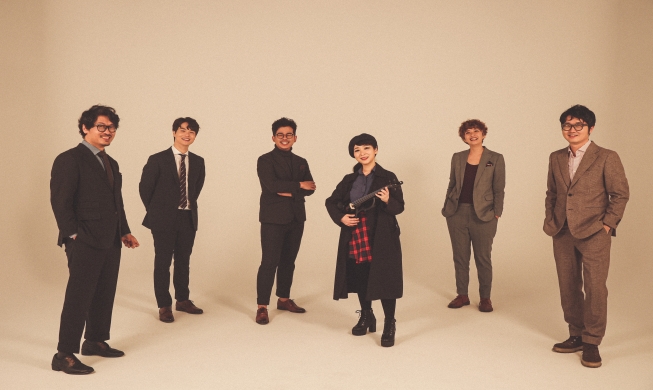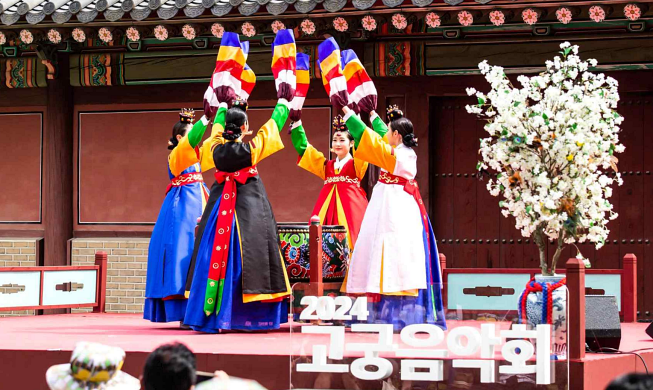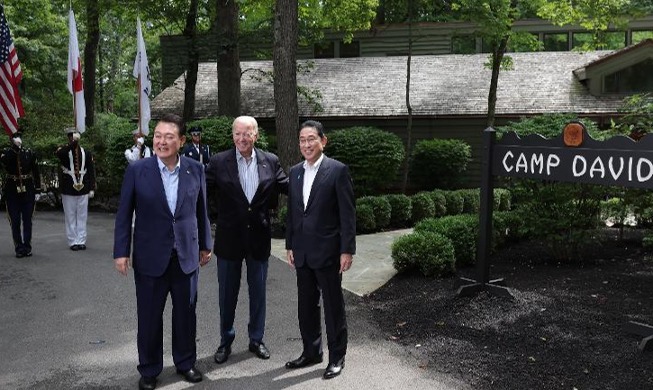-
 Korea.net's 24-hour YouTube channel
Korea.net's 24-hour YouTube channel- NEWS FOCUS
- ABOUT KOREA
- EVENTS
- RESOURCES
- GOVERNMENT
- ABOUT US

- 한국어
- English
- 日本語
- 中文
- العربية
- Español
- Français
- Deutsch
- Pусский
- Tiếng Việt
- Indonesian
By Honorary Reporter Ghada Mohamed Ali from Egypt
Photos=Matthew TW Huang of Second Moon
The final curtain has fallen on Second Moon's tour of California, but the fusion band's music keeps resonating in spreading its appeal to the U.S.
Renowned for mixing traditional and contemporary sounds, the group is also famous for its soundtracks for K-dramas and performing at the closing ceremony of the 2018 PyeongChang Winter Olympics.
Second Moon from April 11-15 toured California, starting at Stanford University in Stanford on April 11, followed by Freight & Salvage in Berkeley on April 12, Muckenthaler Center in Los Angeles on April 14 and finally the Korean Cultural Center in Los Angeles on April 15.
The following are excerpts from an email interview with the group from April 16-20.
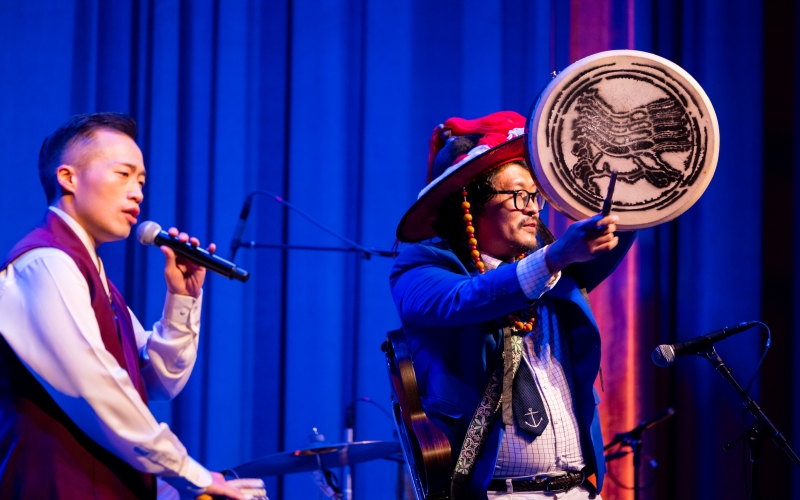
Pansori (traditional lyrical opera) singer Oh Dan-hae and Second Moon member Kim Hyun-bo perform on April 11 at The Studio of Stanford University in Stanford, California.
Briefly introduce Second Moon.
Members Kim Hyun-bo and Park Jin-woo started in engineering before working on music for commercials and dramas. Choi Jin-kyung, Lee Young-hoon, Jo Yun-jeong and Park Jong-sun studied music at university and played in bands or for singers.
This mixture of experiences with rock and jazz is what created Second Moon's unique sound, which combines many musical styles. Our desire to create and perform our own music led to Second Moon.
Our name came from wondering what Earth would be like with two moons. Two moons would change our world, which can often feel divided like day and night, men and women, friends and enemies, and even popular and unpopular things.
Why use traditional folk instruments and how do you harmonize different sounds?
We use the mandolin, Irish whistle, electric bagpipes and bouzouki, all of which are traditional instruments in Irish folk music. To make our sound work well with the simpler melodies of pansori (traditional lyrical opera), we blend styles like blues and jazz with Irish folk vibes.
How do you feel about K-dramas' popularity after having composed their music?
K-dramas weave together cultural threads like those of literature, art, music, politics, economics and philosophy. They also don't shy away from realistic portrayals in avoiding overly glorified narratives. So experiencing all these elements, not just music, is crucial for truly understanding Korean culture. As musicians, we naturally believe music holds a powerful role in this process.
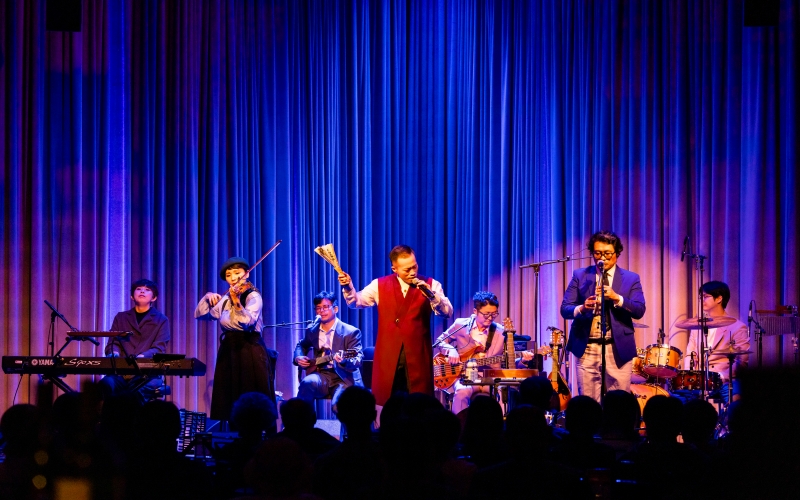
In Stanford University performance, the band performed most of their songs from the "Pansori Chunhyangga" album. Many foreign attendees were not familiar with the overall story of Chunhyangga, so they wanted to convey the complete narrative through their performance.
Why did you decide to tour the U.S. and what moments stood out?
The U.S. was a perfect choice for our tour because it's a leading force in music with a rich cultural tapestry due to its diverse population.
Two things stood out to us in our tour. First was the energy from the crowd. Hearing both foreign and Korean audiences cheering together with shouts like "Ulssigu" (Hurray) and "Jalhanda" (Good job) was unforgettable. We were also surprised and touched that some fans brought our albums and even LPs that we don't sell in the U.S.
Second, our conversations with the audience after the shows were amazing. They clearly had a deep understanding of music and culture and their thoughtful and insightful questions were both welcoming and enriching for us.
How do you use pansori in your music and what song from the genre do you like?
Translating pansori with music is like telling a story with both words and music. We want to keep the original story clear and completely unchanged and try to make it easy to understand and feel like a unique creation.
"In the West Sky" is our traditional encore song, a reminder of how grateful we are to our fans. Our album "Pansori Chunhyangga" was our start in using traditional music in our repertoire, and it even helped our U.S. tour in sharing pansori with a wider audience.
What message did you want to send to your audiences in the U.S.?
We wanted to show them that Korea has more music genres than they might think. And especially for this tour, we wanted to express Korean stories through Western music in collaboration with traditional Korean musicians. We thought that this would greatly help audiences understand and enjoy the unfamiliar yet fascinating stories of Korea.
msjeon22@korea.kr
*This article is written by a Korea.net Honorary Reporter. Our group of Honorary Reporters are from all around the world, and they share with Korea.net their love and passion for all things Korean.
Most popular
- 76 national heritage sites to allow free admission from May 15
- First Korean-style 'taxi driver' diner opened in New York
- Africa's appeal on full display at downtown festival in Seoul
- UK univ., KCC in London host Korea Day event in Sheffield
- Northern Seoul suburb hosts festival of 100 million flowers



